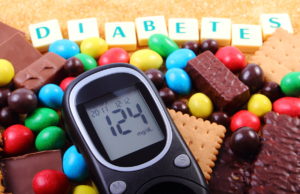
Senior Care in Berlin CT: November is National Diabetes Awareness Month: What Are the Symptoms of Diabetes?
When a person has diabetes, their body isn’t able to properly use the foods they eat to create energy. To convert food to glucose, which is used for energy, the body relies on a hormone called insulin. Insulin is manufactured in the pancreas. When a person has diabetes, their body doesn’t use insulin properly or doesn’t make enough insulin. Diabetes can strike a person at any age. In fact, diabetes is more likely to occur in older people, with the risk rising at the age of 45 and beyond. As a family caregiver to an aging family member, recognizing the symptoms of diabetes can ensure that your loved one gets the medical care they need sooner.
Factors that Increase Risk for Diabetes
As with many diseases, there are certain factors that make a person more likely to get diabetes. Since age is one of the risk factors, the older adult in your life is already at an increased risk. The following risk factors further increase their risk:
- Excess weight.
- Family history of diabetes.
- High blood pressure.
- Lack of physical activity.
- History of stroke or heart disease.
- Having depression.
- Low “good” cholesterol levels.High triglycerides levels.
Signs of Diabetes
The signs of diabetes can be very subtle, even unnoticeable, in the beginning. However, as the disease gets worse, so do the symptoms. And, untreated, a person with diabetes can develop some serious complications. The symptoms of diabetes include:
- Increased Thirst and Urination: Normally, people urinate between four and seven times in a day. Someone with diabetes may urinate much more. That’s because the excess glucose that the body cannot use is filtered out through the kidneys, forcing them to work harder and absorb fluids from the tissues to produce more urine.
- Fluctuating Weight: Because sugar is lost through the urine, a diabetic also loses calories, causing weight loss. But, at the same time, they may feel hungrier because the body isn’t getting the energy it needs, so they may eat more and gain weight.
- Hands and Feet that Tingle: Diabetes can cause nerve damage, so extremities may tingle or lose feeling.
Frequent Infections: People with diabetes may have sores that heal slowly or get infections more often than a healthy person. - Blurry Vision: One of the places that fluid is drawn from when a person has high blood sugar is the lenses of the eyes, which can affect vision.
If your family member has diabetes, a senior care provider can help them to manage the disease. A senior care provider can remind them to check their blood sugar and take medications. They can also prepare meals that fit in the person’s meal plan. A senior care provider can even drive the older adult to medical appointments to monitor their condition.
Sources
https://www.webmd.com/diabetes/guide/understanding-diabetes-symptoms#1
https://www.mayoclinic.org/diseases-conditions/diabetes/in-depth/diabetes-symptoms/art-20044248
http://www.diabetes.org/diabetes-basics/symptoms/?referrer=https://www.google.com/
https://www.cdc.gov/media/presskits/aahd/diabetes.pdf
https://www.niddk.nih.gov/health-information/diabetes/overview/risk-factors-type-2-diabetes
https://www.mayoclinic.org/diseases-conditions/diabetes/in-depth/diabetes-symptoms/art-20044248?pg=2
If you or an aging loved-one are considering in-home senior care in Berlin, CT, please contact the caring staff at Franciscan Ever There Care. Call today 203-630-2881.

